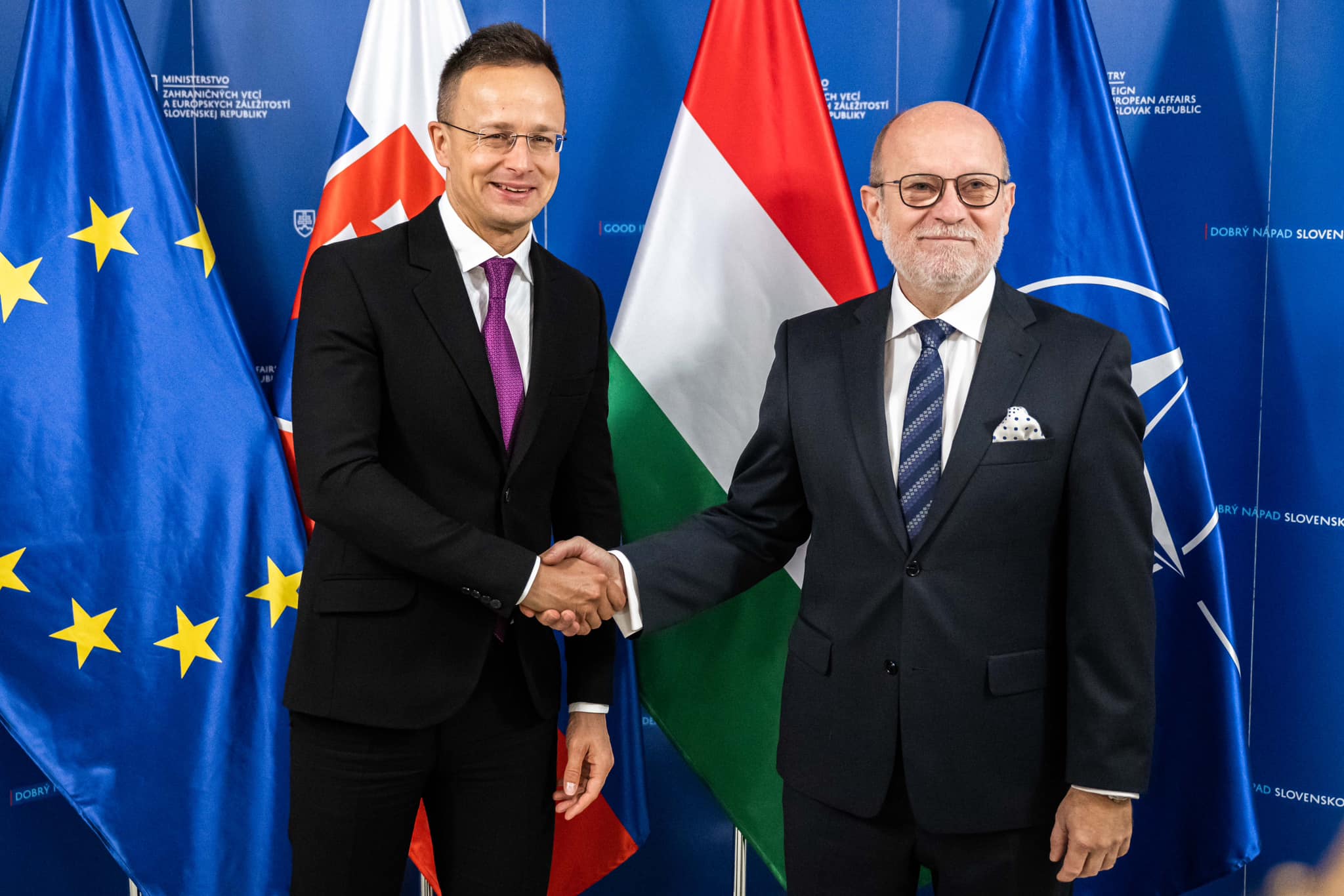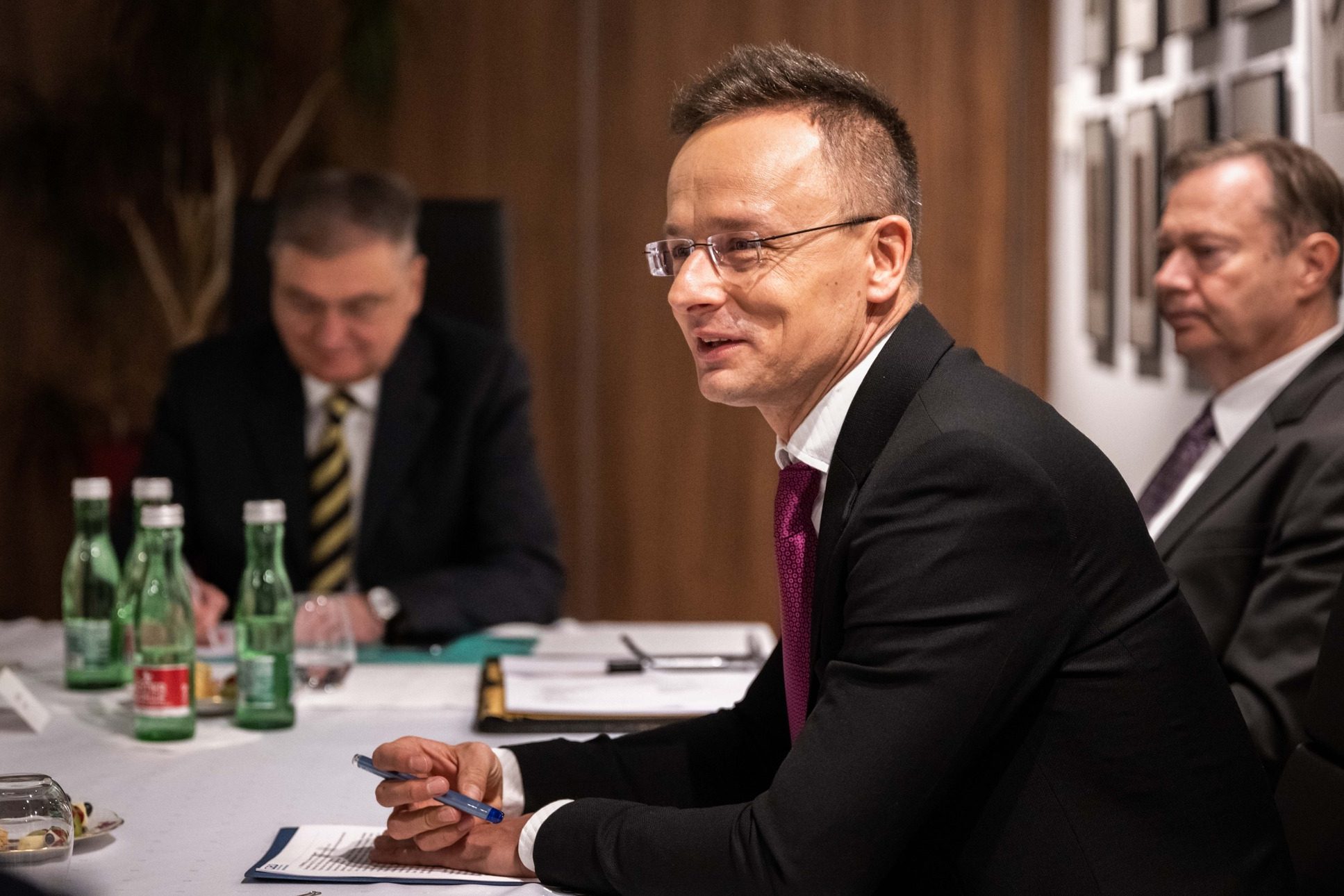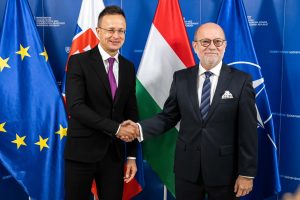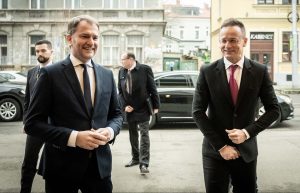
Both countries are reliable NATO allies, with Slovakia contributing dozens of police officers to the protection of the besieged Hungarian-Serbian border.Continue reading

During his recent visit to Slovakia, the Hungarian Foreign Minister gave an interview to the Hungarian-language news portal Ma7.sk.
Here, Peter Szijjártó refused to comment on Slovak Foreign Minister Rastislav Kácer’s statements, according to which the post WWII Benes decrees, which still assign collective guilt to the Hungarian community living in Slovakia, are “not a matter of minority policy.” This would in fact deny the Hungarian government the right to comment on the issue, as neighboring governments are only entitled to raise their voices in cases in which people of their own national community are concerned. The current and past Slovak governments have used this argument to accuse Budapest of interfering in internal affairs when it came to concerns about the treatment of Hungarians indigenous to Slovakia.
Instead, he emphasized that Slovakia is Hungary’s second largest trading partner, with bilateral trade flows rising to over €13 billion last year and a further 43 percent this year. Next year, three new bridges will be inaugurated connecting the two countries, and their leaders should focus on similar things instead of allowing the agenda to be dominated by what he called “unnecessary statements,” stated Szijjártó.

With Slovak Foreign Secretaty Rastislav Kácer (R) in Bratislava. Photo: Facebook Péter Szijjártó
He added that Slovakia is the fourth most sought-after destination for Hungarian venture-capital and there are 850 Slovak companies, which employ more than five thousand Hungarians. “Hungarians and Slovaks are interdependent on many issues. The war has brought out our differences,… but I think it has also strengthened our interdependence just as much,” said the Foreign Minister.
Answering a question about purchasing oil from elsewhere than Russia, Szijjártó replied that “what we are talking about is not reality, but fantasy. The situation today is that the Friendship pipeline supplies Hungary, Slovakia, and part of the Czech Republic from Russia. If someone cuts it off, we will not be able to supply our countries with the same quantities from elsewhere.”

V4 Foreign Ministers in Bratislava. Photo: Facebook Péter Szijjártó
The Foreign Secretary has also recalled that he met former Slovak Prime Minister Robert Fico during his recent visit to Bratislava (Pozsony). In Szijjártó’s view, Fico’s premiership has opened up a new dimension in Slovak-Hungarian relations, when the two governments have jointly taken action against illegal migration, connected natural gas pipelines, and opened new border crossings.

With former Slovak PM Robert Fico (R) in Bratislava. Photo: Facebook Péter Szijjártó
Foreign Secretary Szijjártó also had good words for former Prime Minister, now Slovak Minister of Finance Igor Matovič, who in his opinion, has always defended Hungary and was an ally against Brussels. In his view, strengthening the Visegrad cooperation is one of the foundations of Budapest’s foreign policy. So far, it has been clear that the Visegrad Group is one of the most effective and closest alliances within the EU, whose members can cooperate very well on a number of issues, said the Foreign Secretary.

With Slovak Finance Minister Igor Matovic (R) in Bratislava. Photo: Facebook Péter Szijjártó
Concerning the partly withheld EU funds, Szijjártó clarified that these are “not humanitarian donations and they are not financial opportunities created out of the goodwill of our friends in Western Europe. EU money is made up of the economic performance of the Member States, based on the work of the people in each country.” The Foreign Secretary added that Hungary is not “asking for some kind of donation, we are not asking for money produced by others.”
Via Ma7.sk, Featured Photo: Facebook Péter Szijjártó